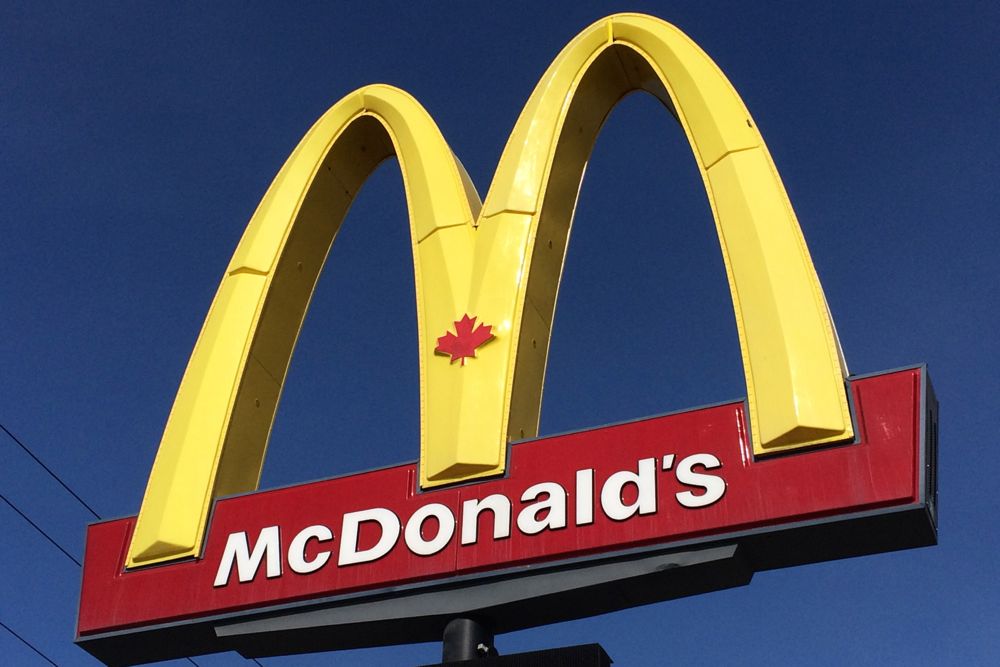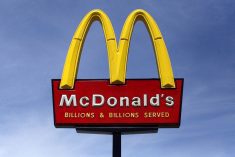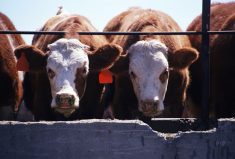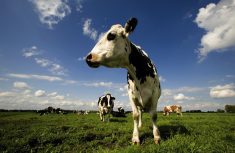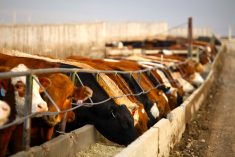Reuters — McDonald’s Corp. on Tuesday announced what it describes as an approved, science-based target to cut greenhouse gas emissions and battle climate change, saying it is the first restaurant company to do so.
Under a plan several years in the making, the fast-food company — along with its franchisees and suppliers — aims to cut its greenhouse gas emissions by roughly one third, preventing 150 million tonnes of them from being released into the atmosphere by 2030.
“To meet this goal, we will source our food responsibly, promote renewable energy and use it efficiently, and reduce waste and increase recycling,” McDonald’s CEO Steve Easterbrook said.
Read Also

China rapeseed meal futures see largest one-day gain in almost three months after Xi–Carney talks
China’s most active Zhengzhou rapeseed (canola) meal futures posted their largest daily gain in nearly three months on Monday, after Canadian Prime Minister Mark Carney and Chinese President Xi Jinping met in South Korea last week without securing a breakthrough on tariffs.
The commitment comes as U.S. President Donald Trump works to weaken Obama-era efforts to combat climate change. Trump decided last year to pull the U.S. out of the Paris climate pact.
Meat processor Tyson Foods, one of McDonald’s suppliers, is among the hundreds of companies that already have committed to fight climate change by cutting greenhouse gas emissions.
McDonald’s said it would put the greatest emphasis on the largest contributors to its carbon footprint: beef production, restaurant energy usage and sourcing, packaging and waste. Those segments combined account for about 64 per cent of McDonald’s global emissions, the company said.
The company said its plan involves “elevating and supporting sustainable agriculture practices,” noting its release last year of its 2020 goals for beef sustainability, to “proactively identify, share and scale beef production’s most sustainable practices.”
McDonald’s said Tuesday it also plans to install energy-efficient lighting and kitchen equipment, support sustainable packaging and encourage recycling in its restaurants.
Between 2015 and 2030, McDonald’s and its partners intend to reduce greenhouse gas emissions related to its restaurants and offices by 36 per cent. The company also aims to reduce emissions intensity per tonne of food and packaging by 31 per cent during that time frame.
McDonald’s program was approved by the Science Based Targets initiative, a collaboration between the World Resources Institute, the World Wildlife Fund, CDP (formerly the Carbon Disclosure Project) and the United Nations Global Compact, which help companies address climate change.
“We are about halfway there already on (total) packaging and waste,” Francesca DeBiase, McDonald’s chief supply chain and sustainability officer.
McDonald’s Canada, in a separate statement Tuesday, said it will work with its franchisees and suppliers “to develop plans to address the largest segments of our carbon footprint.”
The Canadian arm said it would work with franchisees to continue setting up energy reduction measures such as LED lighting, low oil volume fryers and other “high efficiency” technologies.
It also noted its participation in the first-ever beef sustainability pilot in Canada, which ran from 2014 to 2016 and “verified key sustainability outcomes across all aspects of beef production, including well-managed grazing systems and the protection of waterways.”
The global chain said the reductions announced Tuesday are the equivalent of taking 32 million passenger cars off the road for an entire year or planting 3.8 billion trees and growing them for 10 years.
The company said its target “will enable McDonald’s to grow as a business without growing its emissions.”
CEO Easterbrook, who also has committed to reducing antibiotic use in chicken and cutting artificial ingredients, said the costs would not be disruptive.
“We’re not expecting any substantial shift in business financials either at the corporate or restaurant level,” Easterbrook said.
— Lisa Baertlein is a Reuters correspondent covering the U.S. restaurant and grocery sectors from Los Angeles. Includes files from AGCanada.com Network staff.

